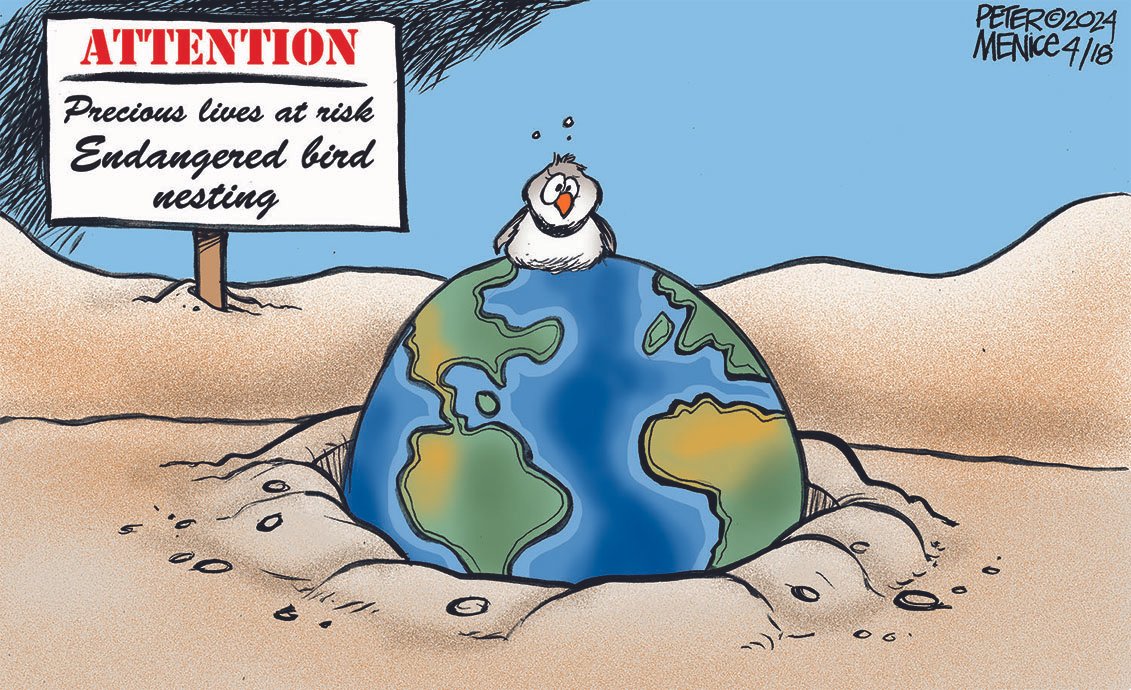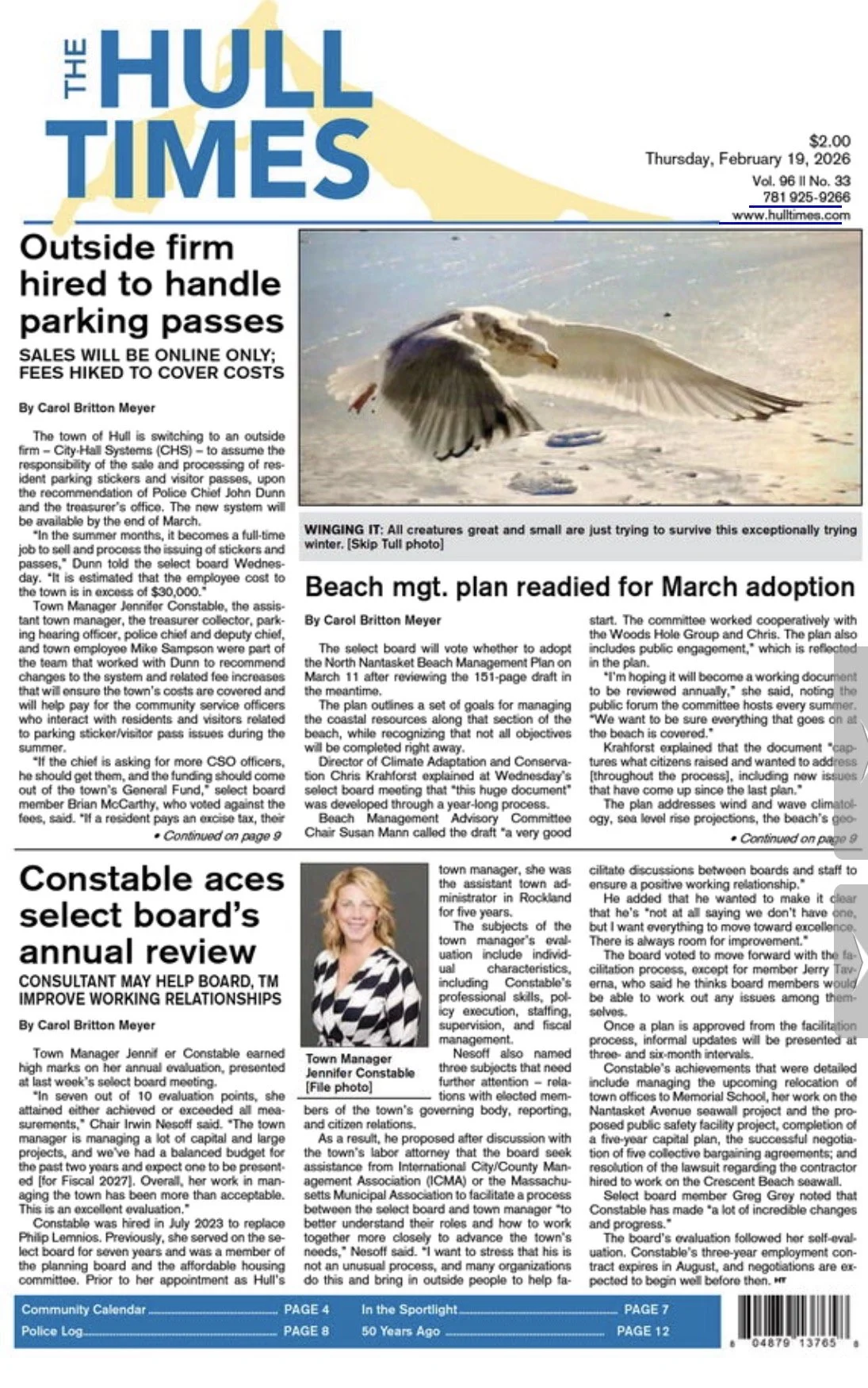Conservation updates: Helping the piping plovers, and why the town won’t plant beach grass this year
/By Chris Krahforst, Director | Hull Climate Adaptation and Conservation Department
Piping Plovers, our avian seasonal residents of Nantasket Beach
Mass Audubon and the town are working to ensure the protection of this state-listed shore bird and will be presenting a few short articles during April and May to provide you with some interesting information about these birds. Look for more information in upcoming editions of The Hull Times. These birds are protected by state and federal law, and the town will ensure best practices are taken for their protection and success (e.g., fireworks are illegal and last year was identified as a cause for a “taking.” More on that later).
The piping plover is a small, stocky shorebird that has populated Nantasket Beach in recent years, usually arriving by mid-March. In fact, as of this writing, they have begun to arrive! These shore birds have a sand-colored upper body, a white underside, and orange legs. While in Massachusetts for the breeding season, adults sport a black neck band and their short bill brightens to orange. They arrive in the spring to raise their families and love our wide, flat beach.
Over the millennia, their strategy for success has been to hide in plain sight from predators by blending in with their surroundings. They can be very challenging to see; you may have to watch and wait until they move in order to spot them. Plovers lay their eggs laid on the sand and pebble beach, and their eggs appear no different from pebbles. However, their distinctive, flute-like piping sounds can alert you to their presence. Adults on their breeding territory also use variations of these notes to fiercely defend their turf from neighboring piping plovers.
On Nantasket Beach, they have grown to a dozen or more parental pairs which spread out so each family has enough prime foraging habitat for their four chicks to develop from the size (and look) of a cotton ball to full grown. As soon as the chicks hatch, their parents guide them to the buffet of flies, beetles, worms, and small crustaceans found on the sand and tidal flats. Chicks can be capable of flight in just four weeks, which makes beach life much safer for them.
Piping plovers have been breeding on the Atlantic Coast far longer than humans have been flocking to these beaches. Today, there are fewer than 4,000 of these specialized birds left on the planet, and half of them breed in Massachusetts. To us, piping plovers may appear to be abundant, but globally they are threatened with extinction and thus dependent on our protection in order to persist. For more information on these threatened creatures please visit the town’s plover information page, at www.town.hull.ma.us/sites/g/files/vyhlif3286/f/uploads/2021_june_2_hull_info_session.pdf
On beach grass planting…
Nearly every year in early spring, the town sponsors an annual beach grass planting on our dunes. Some of you who participated in past planting events may have noticed how lush and green the dunes appear in recent years. Our grass planting has greatly helped to stabilize the dunes.
Dunes are important because they protect landward property from storm waves that surge up the beach. The dune gives up itself to the pounding waves while providing storm surge protection and flood control to the adjacent neighborhoods. Planting beach grass in areas of the dune that were damaged by storms has resulted in the lush dune system we have today. So, why not continue to plant again this year? Since we have worked to establish such a strong base of beach grass in our dunes, Massachusetts Coastal Zone Management suggests that we let what we have planted do its job. Beach grass likes to grow and move into new accumulating sand, typically be sending forth new growth through its rhyzomes (roots). Sometimes you can overplant and stymie this natural growing process. That is why, when we do plant, we make sure our individual culms (baby beach grass) are planted one-and-a-half feet from each other. This year (and last year) the town did not sponsor an annual beach grass planting day. This does not mean this event will not occur again in the coming years, it just depends on whether the dunes (and the current growing beach grass) need our help.
Let’s see how the grass does again this year!
Like what you’re reading? Stay informed with a Hull Times subscription by clicking here.
Do you have an opinion on this issue? Click here to write a Letter to the Editor.












